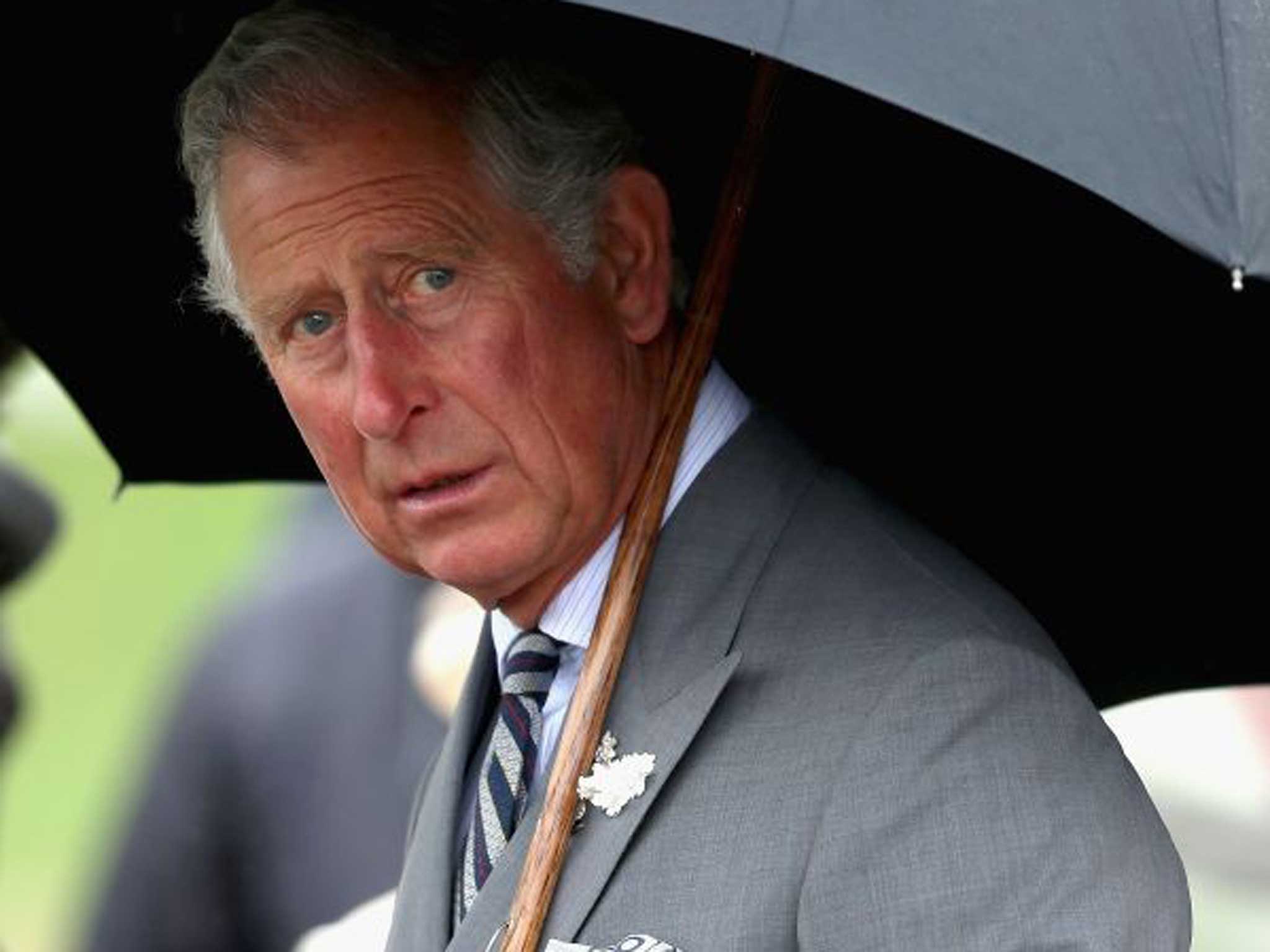Can Prince Charles get laws changed? They won't say
This makes a mockery of the idea that the UK is a democracy based on equal rights

In the past two weeks, we have been treated to opposing opinions of President Vladimir Putin from two great thinkers of our time. On an official visit to Canada, the Prince of Wales compared him with Hitler, seeing a parallel between his behaviour towards Ukraine and the Nazi invasion of Czechoslovakia. The heir to the throne was rebuked by the Ukip leader, Nigel Farage, who had previously named the Russian president as the world leader he most admires.
The irony, which probably hasn't struck either man, is that they have much in common. Charles is a few years older than Farage but they are both products of the British public school system, coming from solidly middle-class, conservative backgrounds. This is not a forcing-ground for rigorous intellectual debate but it does instil a lifelong confidence which reveals itself in a fondness for instant opinion. It also creates nostalgia for a kind of Englishness which is decades out of date, even if Charles would never be crass enough to express concern about a group of Romanian men moving in next door.
But then the prince doesn't, as a rule, need to express his opinions publicly. He has a back channel to the government and uses it freely. His office insists that he has a right to speak privately to ministers "on any matter he chooses" and it is a right he exercises with enthusiasm: figures released last year showed he had held private meetings with cabinet ministers on 36 occasions since the 2010 general election.
He also fires off letters on a wide range of subjects, the famous "black spider memos" that are the subject of an epic court battle between The Guardian and the Attorney General, Dominic Grieve. Grieve is fighting a last-ditch action to prevent publication of 27 "particularly frank" letters written in 2004 and 2005. The battle is set to move to the Supreme Court after a succession of judges ruled in favour of publication.
The Government's reasons for vetoing publication make fascinating reading. Grieve says they shouldn't be published because the public could interpret them as showing Charles "disagreeing with government policy"; a perception that the prince had been in conflict with a Labour government would be damaging "because if he forfeits his position of political neutrality as heir to the throne, he cannot easily recover it when he is king". Translation: the next head of state opposed the policies of an elected government and didn't even bother to hide the fact when he secretly lobbied ministers.
Some Labour ministers were aghast at how frequently Charles lobbied on behalf of his pet subjects; one received his first royal memo within weeks of joining the government. But there is another reason why Charles's "private" views should concern us. I suspect that the Foreign Office spent quite a bit of time last week telling the Russians that his position is ceremonial and his opinions don't reflect those of the Government. Just when the diplomatic row seemed to be dying down, it erupted again yesterday as Putin, milking the situation for all it was worth, in effect accused Charles of bad manners.
Unlike someone sounding off in the pub, the prince's opinions have consequences. The impact of a letter from him is not the same, to put it mildly, as one from someone living on a council estate. A royal letter goes straight into the minister's red box, even if it doesn't relate to a piece of legislation over which Charles, as head of the Duchy of Cornwall, has a veto. He exercised that right at least 12 times between 2005 and 2011, by the way, forcing the government to get his permission before passing Bills on road safety, gambling, housing, marine and coastal access, regeneration and housing, and the London Olympics. This emerged in response to a Freedom of Information request but neither the Government nor the prince's office will reveal if he demanded changes to draft Bills.
This clandestine influence makes a mockery of the idea that the UK is a democracy based on equal rights. It also exposes the flaw in the argument for a hereditary head of state: the myth that he or she is above politics. It is a fiction that allows Charles to meddle in the democratic process, a fact underlined by the Grieve court case. From my own experience, he isn't the only member of the family with strong political views; in my hearing, the Queen once initiated a discussion on the size of the EU and observed that she didn't want Turkey to be allowed to join for a long time.
These are the kind of remarks people make to their friends or post on Twitter without causing an international incident. It's different for members of the Royal Family, who know that ministers listen to what they say. If they want to express political views, they can renounce their claim to the throne and become private citizens. If they want to exercise political influence legitimately, they can even stand for election. The worst of all worlds is a royal family whose members let slip "private" opinions as banal and reactionary as those of Mr Farage.

Join our commenting forum
Join thought-provoking conversations, follow other Independent readers and see their replies